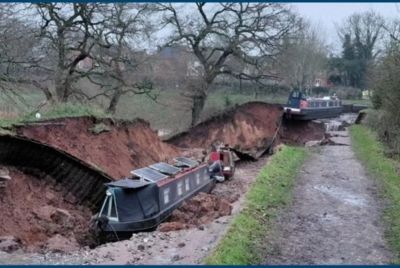How Eurostar Train Cancellations Could Affect Your Travel — Power Outage Sparks Chaos, Passengers Seen Walking on Tracks
The outage follows a pattern of disruptions, including a March 2025 event caused by an unexploded WWII bomb

Eurostar services between London and Paris descended into travel chaos on 4 August 2025, with at least 17 trains cancelled and others delayed by up to two hours due to a power outage near Moussy, 30 miles north of Paris.
The disruption, which left passengers stranded and, in one case, walking along tracks, has raised concerns about reliability during the peak summer travel season.
What's the outage's impact, passenger experiences, and Eurostar's response to the crisis?
Power Outage Paralyses Paris-London Route
The major disruption began at 8:30am on 4 August 2025, when a power failure on the French high-speed rail network, operated by SNCF, forced the closure of a critical track section.
Eurostar cancelled eight London-Paris trains, including services ES9022 (11:31) and ES9050 (19:01), and nine continental routes, such as Paris-Amsterdam ES9321 (09:22).
SNCF reported that major repairs were needed, with disruptions expected until late evening. Routes to Brussels and Amsterdam remained unaffected, but passengers on Paris-bound trains faced severe delays, with some services rerouted, extending journey times.
The outage compounded a summer of setbacks for Eurostar, following a June 2025 cable theft of 600 metres of copper near Lille and a July incident where passengers walked beside tracks after a train broke down between Lille and Calais.
The Telegraph reported that passengers on a London-bound train from Brussels, departing at 8:52am, were escorted off after a four-hour wait, with a replacement train arriving at 4:45pm.
Eurostar advised travellers to postpone journeys, offering free ticket exchanges or refunds up to £225 ($298).
Passenger Frustration and Safety Concerns
The stranded passengers faced chaotic scenes at stations, with long queues at St Pancras International and Gare du Nord.
Social media posts captured the frustration, with one traveller on X, @TheSunTravel, stating, 'Eurostar chaos as trains cancelled & delayed sparking summer holiday carnage.'
Eurostar chaos as trains cancelled & delayed sparking summer holiday carnage https://t.co/eHZYJPYVEW
— The Sun Travel⛱ (@TheSunTravel) August 4, 2025
Another, @living_2020, described it as 'an utter shambles for travel to France,' reflecting widespread discontent.
Is the #Eurostar the biggest train failure in Europe?! Barely any of its services seem to have operated properly this year. 2025 has been an utter shambles for travel to France. Eurostar cancels eight trains between London and Paris after power outage https://t.co/nAbiwTVi5X
— London living 2020 (@living_2020) August 4, 2025
Safety concerns escalated after footage showed passengers walking beside tracks on a Brussels-London train in July, a scenario repeated in this outage.
Elizabeth Romijn, a 75-year-old yoga teacher from the Netherlands, told BBC that the incident was, 'very chaotic,' and 'My plan is to just wait. Maybe I should go and be more proactive and go to ask one of the staff but nobody seems to know anything,' with passengers sitting on the ground due to insufficient seating.
Eurostar provided water and assistance, but the scale of disruption overwhelmed station staff, leaving travellers like Romijn uncertain about their plans.
Eurostar's Response and Future Implications
Eurostar's response included opening one track to allow limited services and promising full repairs by evening, though delays persisted.
A Eurostar spokesperson said, 'Passengers can exchange their tickets free of charge or request a full refund,' urging travellers to monitor updates via the Eurostar website.
SNCF's focus on major repairs aimed to restore normal service by 5 August, but the incident highlighted vulnerabilities in the high-speed network, especially during peak travel periods.
The outage follows a pattern of disruptions, including a March 2025 unexploded WWII bomb at Gare du Nord and June's cable theft, raising questions about infrastructure resilience.
With international rail travel growing as a sustainable alternative to flights, such incidents risk undermining confidence.
Travellers are advised to check Eurostar's timetable, budget for alternative travel costs—potentially £150 ($200) for last-minute flights, and remain flexible with plans to mitigate further disruptions.
© Copyright IBTimes 2025. All rights reserved.



















